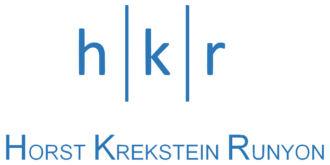Pennsylvania’s attorney disciplinary process may be unfamiliar to many practitioners. No attorney contemplates a career involving an ethical review of their conduct within our Commonwealth’s disciplinary system. Regardless, Pennsylvania attorneys must have familiarity with the disciplinary process and the scope of the Rules of Professional Conduct. The aim of this Blog is to emphasize that necessary knowledge, while inviting our attorney readers to review, as necessary, the disciplinary process.
The Rules of Professional Conduct (“RPC”) authorized and promulgated by the Pennsylvania Supreme Court, provide our starting point. These rules set the ethical standards for Pennsylvania’s attorney roster. Attorney conduct is regulated via the RPC — and, just as with a criminal matter — any ignorance of the RPC serves as no valid defense to their breach, so it is advisable for all attorneys to periodically review the RPC and their periodic revisions, especially as the Supreme Court advises the Bar of these revisions.
If you find yourself the subject of a disciplinary investigation, the two major pieces of advice you should keep in mind are: 1) hire an experienced disciplinary attorney to represent you through proceedings; and 2) take responsibility for your actions (assuming you are guilty of the conduct you are being investigated for) and use candor with the boards.
As attorneys, we are acutely aware of the importance of competent legal counsel, and this is no different when navigating disciplinary proceedings. Pennsylvania’s disciplinary process encompasses a complex set of rules and procedures that must be followed, and failure to abide by these can have disastrous consequences. Take for instance, the DB-7 notice, which is issued by the Office of Disciplinary Counsel. The DB-7 advises an attorney that a complaint has been filed against them and requests a formal statement outlining the attorney’s position with respect to the allegations set forth in the complaint. Failure to respond or improperly responding to the DB-7 may constitute grounds for discipline in and of itself. To avoid costly pitfalls such as this, you will do well to hire experienced disciplinary counsel and not attempt self-representation in these matters.
It is also incredibly important to be honest with the disciplinary tribunals about your behavior and acknowledge that you made a mistake. One of the major things the disciplinary board is trying to determine throughout its review is your credibility as an attorney and the likelihood of you committing another ethics violation in the future. Being forthcoming about the conduct and circumstances that placed you in disciplinary proceedings is the best means of demonstrating to the boards that you are taking accountability for your actions and will comport your behavior to the Rules of Professional Conduct moving forward. The Disciplinary Board’s website is replete with published disciplinary orders, many of which list aggravating and mitigating circumstances of the subject attorney. Everybody reading this is encouraged to review a few of these and note how much weight the boards give to candor,honesty and genuine remorse.
As a final note, all attorneys who hope to avoid disciplinary proceedings are advised to seek mentorship and assistance with any personal struggles they are experiencing. Attorneys who have been active in the law for years are well-suited to providing less experienced attorneys with assistance in conforming their conduct to the rules and requirements of ethical legal practice – and they are usually more than happy to share their wisdom with any young attorney eager to listen. Regarding seeking assistance with personal struggles, there are numerous organizations out there, such as Lawyers Concerned for Lawyers, that are prepared to take your call at any hour of the day and offer support and/or advice on the difficulties you may be facing. Most attorneys are aware that our profession is particularly susceptible to issues of mental health, substance abuse, and financial hardship. Acknowledging that you need help can be a tough hurdle to overcome, but be assured that it is far easier and less consequential than facing a disciplinary investigation.
To summarize, please keep yourself updated on the Rules of Professional Conduct, seek help when you need it, and always use honesty and candor with the disciplinary boards. The entire legal profession, and the public at large, all benefit when we engage in the ethical practice of the law.

